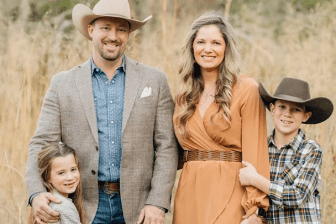The story was already written, edited and ready for the history books: Alberta’s 41-year Progressive Conservative dynasty is dethroned by an upstart party claiming to be the true voice of the right in Wildrose Country.

But that’s not the version Alberta’s voters delivered on Monday night.
Despite poll after poll and ensuing media analysis suggesting that Danielle Smith and her Wildrose Party werewithin striking distance of a majority, Premier Alison Redford not only held on to power, but delivered a stunning majority mandate.
The aftermath has Canadians around the country asking what happened and why didn’t we see it coming.
In the week before the election, six of seven polls showed the Wildrose party with a lead of at least six points. The seventh poll, done by Forum Research on April 22, showed the Wildrose lead was just two points.
But when it came to the poll that matters – the actual ballot box on Election Day – Redford and her PCs commanded a 10-point lead.
“The polls got it wrong, there’s no question about it,” said Janet Brown, a Calgary-based pollster and political commentator. “Anyone who tells you they saw it coming is absolutely blowing smoke.”
SOUND OFF: Should polling firms be in the business of “horserace polls” that track who appears to be the front-runner in an election? Or is that doing more harm than good? Join the discussion on Facebook.
- ‘Shock and disbelief’ after Manitoba school trustee’s Indigenous comments
- Canadian man dies during Texas Ironman event. His widow wants answers as to why
- Several baby products have been recalled by Health Canada. Here’s the list
- ‘Sciatica was gone’: hospital performs robot-assisted spinal surgery in Canadian first
After spending a sleepless night racking her brain for answers, Brown said the strongest hypothesis for why the polls were so off base is that Progressive Conservatives simply weren’t engaging with the pollsters.
Comparing it to a trial separation, Brown said loyal PC voters were fed up with the party and its culture of entitlement at the outset of the campaign. Add that to the momentum of the Wildrose Party, they may have been questioning their choice and keeping silent when pollsters called.
“Albertans wanted to send a message to the (PCs),” Brown said. “Only after they had the chance to contemplate other options did Albertans decide to take the PCs back and give them another chance.”
Brown’s comment alludes to several Wildrose Party gaffes that may have prompted PC supporters to stay the course when the pencil hit the ballot.
Smith refused to condemn so-called “bozo comments” made by two pastors and Wildrose candidates that critics called intolerant. One of the candidates, Ron Leech, told a radio station he had an advantage because he was white, while the other, Allan Hunsperger, was taken to task for anti-gay comments he made in a year-old blog post. Smith said candidates are allowed to have their personal views, but that the party wouldn’t legislate based on them.
Then Smith made her own bozo comment at a leaders’ debate, saying that the jury was still out human-induced climate change.
When it started to look like the Wildrose Party was about to sweep the province, Brown said she believes undecided voters and disgruntled PCs ran back.
“I think that what happened last night shows Albertans are not socially conservative and social conservativism does scare them,” she said.
Speaking to reporters after the election, Smith herself said the last minute choices of undecided voters played a role in the election result.
“There are lots of people who make up their mind in the last 48 hours and we weren’t able to convince them it was time for a Wildrose Government,” she said, but added she wouldn’t have changed how she handled the personal views of her candidates.
The inability of the polls to pick up on the last minute changes has some critics questioning the future of polling during elections.
“Increasingly the pollsters are just getting it wrong,” said Lydia Miljan, an Alberta-native who is now an associate professor of political science at the University of Windsor.
“If I were a pollster today I would be really worried about my livelihood because it calls into question any kind of survey research,” she said.
Miljan said in light of the results pollsters are going to have to go back and examine how they are conducting polls, including when they are calling, who they are reaching and what mix of phone and online contact they are using.
“It was a tough night for our industry as a whole,” said Jamie Duncan, the associate vice-president of Ipsos Reid Public Affairs. “What it shows is that we as an industry need to re-evaluate whether or not horserace polling is the best way to promote our business.”
Duncan said the difficulty in such polling is that opinions can change on a dime and none of the methodologies, whether phone, online or robocalls, could really measure how anchored the choice of voters are.
Duncan said that’s something they will have to try to improve in the future.
And as the country gets over its shock, the words of Premier Redford ring true: “The only poll that matters is election night.”


Comments